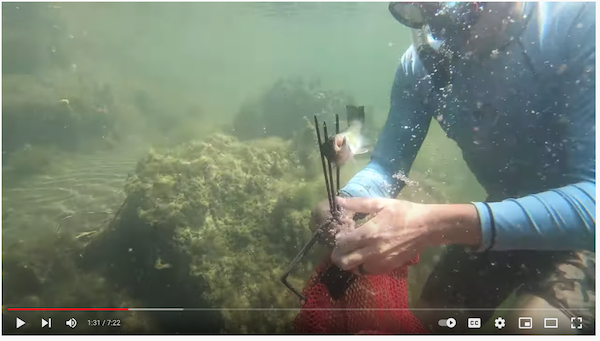
Spears, Spear Guns, Bait Again OKed On Coquille For Smallmouth
THE FOLLOWING IS A PRESS RELEASE FROM THE OREGON DEPARTMENT OF FISH AND WILDLIFE
Spears, spear guns and angling with bait to harvest smallmouth bass is allowed in the Coquille River through October 31, 2022. There are no size or bag limits on bass harvest in the Coquille.

The temporary rule is meant to reduce impacts of non-native smallmouth bass on wild fall Chinook salmon in the mainstem Coquille River and the East, Middle, North, and South forks. In the South Fork Coquille, the regulation applies from the mouth to the U.S. Forest Service boundary near Powers.
Spearfishing provides another tool to remove smallmouth bass and help native fish. Many spear fishing anglers participated in this unique harvest opportunity the last two years.
Anglers can use maps of public access on the South Fork Coquille and lower Coquille and a map of smallmouth bass distribution to target these fish. ODFW has a helpful series of videos on spearfishing the Coquille River, including how to build your own fishing spear and how to filet a smallmouth bass.
Although wild fall Chinook in the Coquille suffered from poor ocean conditions, predation by smallmouth bass is the primary reason these fish have not rebounded to the same extent as in other coastal rivers. Smallmouth bass predating on Pacific lamprey and other native species is also a concern.
Since discovery of illegally introduced smallmouth bass in the Coquille River, these invasive fish expanded their range and now are present up to the Forest Service boundary above Powers in the South Fork, up to Laverne Park in the North Fork, and up to Sandy Creek in the Middle Fork. Warm summer temperatures and low flows favor smallmouth bass over native fish and allow them to make further inroads into salmon habitat.
ODFW and partners electrofished for smallmouth bass the past two years and will continue to investigate other removal methods to reduce predation on juvenile wild fall Chinook.
Multiple age classes of smallmouth bass were first confirmed in the Coquille in 2011 meaning the fish had been in the river for multiple spawning cycles.
